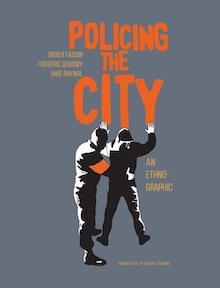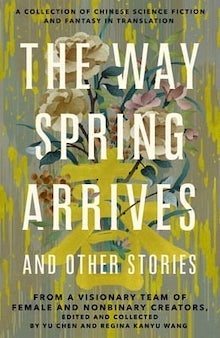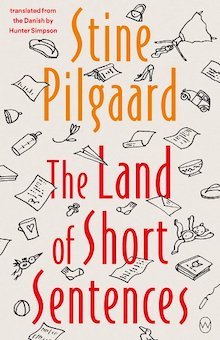 From Other Press | Policing the City by Didier Fassin and Frédéric Debomy, translated from the French by Rachel Gomme | Nonfiction/Graphic Novel | 112 pages | ISBN 9781635422504 | US$25.99
From Other Press | Policing the City by Didier Fassin and Frédéric Debomy, translated from the French by Rachel Gomme | Nonfiction/Graphic Novel | 112 pages | ISBN 9781635422504 | US$25.99
What the publisher says: “Around the time of the 2005 French riots, anthropologist and sociologist Didier Fassin spent fifteen months observing up close the daily life of an anticrime squad in one of the largest precincts in the Paris region. . . . This new, powerfully illustrated adaptation clearly presents the insights of Fassin’s investigation, and draws connections to the challenges we face today in the United States as in France.”
What Publishers Weekly says: “Creating comics from the academic source material is no easy task, but the animation in Raynal’s artwork and creative layouts allows Fassin to expound on his theories and dramatically expose the emotional currents raging through notions of fair and equal justice.”
What I say: Could one of the most important graphic novels of 2022 be an illustrated adaptation of an academic study? I’d have scoffed if you’d told me that before this month, but right now I’m on board. Policing the City is a unique, searing look at institutional flaws and the unsettling consequences that they can have around the world.
 From Deep Vellum | Palestine +100, edited by Basma Ghalayini, translated from the Arabic by Thoraya El-Rayyes, Andrew Leber, Yasmine Seale, Raph Cormack, Mohamed Ghalaieny | Fiction | 246 pages | ISBN 9781646051403 | US$14.95
From Deep Vellum | Palestine +100, edited by Basma Ghalayini, translated from the Arabic by Thoraya El-Rayyes, Andrew Leber, Yasmine Seale, Raph Cormack, Mohamed Ghalaieny | Fiction | 246 pages | ISBN 9781646051403 | US$14.95
What the publisher says: “Palestine + 100 poses a question to twelve Palestinian writers: what might your country look like in the year 2048—a century after the tragedies and trauma of what has come to be called the Nakba? How might this event—which, in 1948, saw the expulsion of over 700,000 Palestinian Arabs from their homes—reach across a century of occupation, oppression, and political isolation, to shape the country and its people?”
What NPR says: “Beyond their shared premise, the stories are inventive and dexterous, as brilliant as they are painful—and sometimes even playful. As often as I wept, reading this book, putting it down and walking away from it for days at a time, I laughed, too, at witty turns of phrase, at surprising goofiness, at a shrugging resilience.”
What I say: Seeing how a host of different writers interpret the same overarching themes can be both analytically fascinating and narratively engaging. That the writers in this anthology are exploring the past, present, and future of Palestine adds an extra layer of relevance to the work on display here. Stylistically and thematically, there’s plenty of ground covered in this collection—an array of possible futures and interpersonal complexities.
 From New Directions | Scattered All Over the Earth by Yoko Tawada, translated from the Japanese by Margaret Mitsutani | Fiction | 256 pages | ISBN 9780811229289 | US$16.95
From New Directions | Scattered All Over the Earth by Yoko Tawada, translated from the Japanese by Margaret Mitsutani | Fiction | 256 pages | ISBN 9780811229289 | US$16.95
What the publisher says: “With its intrepid band of companions, Scattered All Over the Earth (the first novel of a trilogy) may bring to mind Alice’s Adventures in Wonderland or a surreal Wind in the Willows, but really is just another sui generis Yoko Tawada masterwork.”
What the New York Times says: “In the future imagined by Yoko Tawada, rising sea levels have swallowed Japan. The ‘land of sushi,’ as it is now known, survives only in the kitschified traces its culture has left on the exoticizing imagination of Westerners, and in the memories of Hiruko, who was studying abroad in Sweden when disaster struck, and may be the last Japanese person on the planet.”
What I say: That this is the first book in a trilogy seems apropos; this is a novel that feels very much like part of a larger whole. That’s not just a result of its story and characters, though; it also applies to the way in which geography, history, and language all suffuse the goings-on here. This novel is a high-wire act of language featuring plenty of high-wire acts of language; that alone is cause to recommend it.
 From Tor.com Publishing | The Way Spring Arrives and Other Stories, edited by Yu Chen and Regina Kanyu Wang, translated from the Chinese by Judy Yi Zhou, Mel “etvolare” Lee, Xia Jia, Cara Healey, Carmen Yilang Yan, Elizabeth Hanlon, Ru-Ping Chen, Rebecca F. Kuang, Yilin Wang, Emily Xueni Jin, Gigi Chang, and Judith Huang | Fiction/Essays | 400 pages | ISBN 9781250768919 | US$26.99
From Tor.com Publishing | The Way Spring Arrives and Other Stories, edited by Yu Chen and Regina Kanyu Wang, translated from the Chinese by Judy Yi Zhou, Mel “etvolare” Lee, Xia Jia, Cara Healey, Carmen Yilang Yan, Elizabeth Hanlon, Ru-Ping Chen, Rebecca F. Kuang, Yilin Wang, Emily Xueni Jin, Gigi Chang, and Judith Huang | Fiction/Essays | 400 pages | ISBN 9781250768919 | US$26.99
What the publisher says: “From an award-winning team of authors, editors, and translators comes a groundbreaking short story collection that explores the expanse of Chinese science fiction and fantasy. In The Way Spring Arrives and Other Stories, you can dine at a restaurant at the end of the universe, cultivate to immortality in the high mountains, watch roses perform Shakespeare, or arrive at the island of the gods on the backs of giant fish to ensure that the world can bloom.”
What Asymptote Journal says: “Despite the imaginative heights these stories reach, each creates enough space in its strangeness for us to reexamine our assumptions about the world and our place in it. Often, folklore and fantasy crosses into sci-fi and allegory, and readers are left feeling unsettled in even the most familiar landscapes.”
What I say: The Way Spring Arrives abounds with distinctive and stylish work, along with a few essays exploring language, gender, and media. The stories here cover a lot of ground, from fantasy works that hum along with a mythic resonance to stories that fall more on the science fictional side of the equation. And some elude any easy classification, as is the case with Shen Yingying’s powerful, harrowing “Dragonslaying” (translated by Emily Xueni Jin), which is both a layered story unto itself and a work about the limitations of language.
 From World Editions | The Land of Short Sentences by Stine Pilgaard, translated from the Danish by Hunter Simpson | Fiction | 272 pages | ISBN 9781642861082 | US$18.99
From World Editions | The Land of Short Sentences by Stine Pilgaard, translated from the Danish by Hunter Simpson | Fiction | 272 pages | ISBN 9781642861082 | US$18.99
What the publisher says: “A young woman relocates to an outlying community in West Jutland, Denmark, and is forced to find her way, not only in the bewildering environment of the residential Folk High School where her partner has been hired to teach, but also in the inscrutable conversational forms of the local population. And on top of it all, there’s the small matter of juggling her roles as mother to a newborn baby and advice columnist in the local newspaper.”
What Man of la Book says: “More than the story itself, I enjoyed reading about the daily life of a different culture. Hunter Simpson, the translator, did a fantastic job at getting the spirit and atmosphere across—no easy task.”
What I say: Stine Pilgaard’s novel is a charming chamber work, focusing on a handful of characters in a relatively isolated location, from the perspective of a protagonist struggling to find her own place in society. Her advice columns make for a fascinating contrast with the stories of her life, and a few unlikely narrative payoffs make these seemingly distanced aspects more connected than you’d expect.
Copyright © 2022 Tobias Carroll. All rights reserved.
Looking for more reading suggestions? Check out Tobias Carroll’s recommendations from last month.
Disclosure: Words Without Borders is an affiliate of Bookshop.org and will earn a commission if you use the links above to make a purchase.










